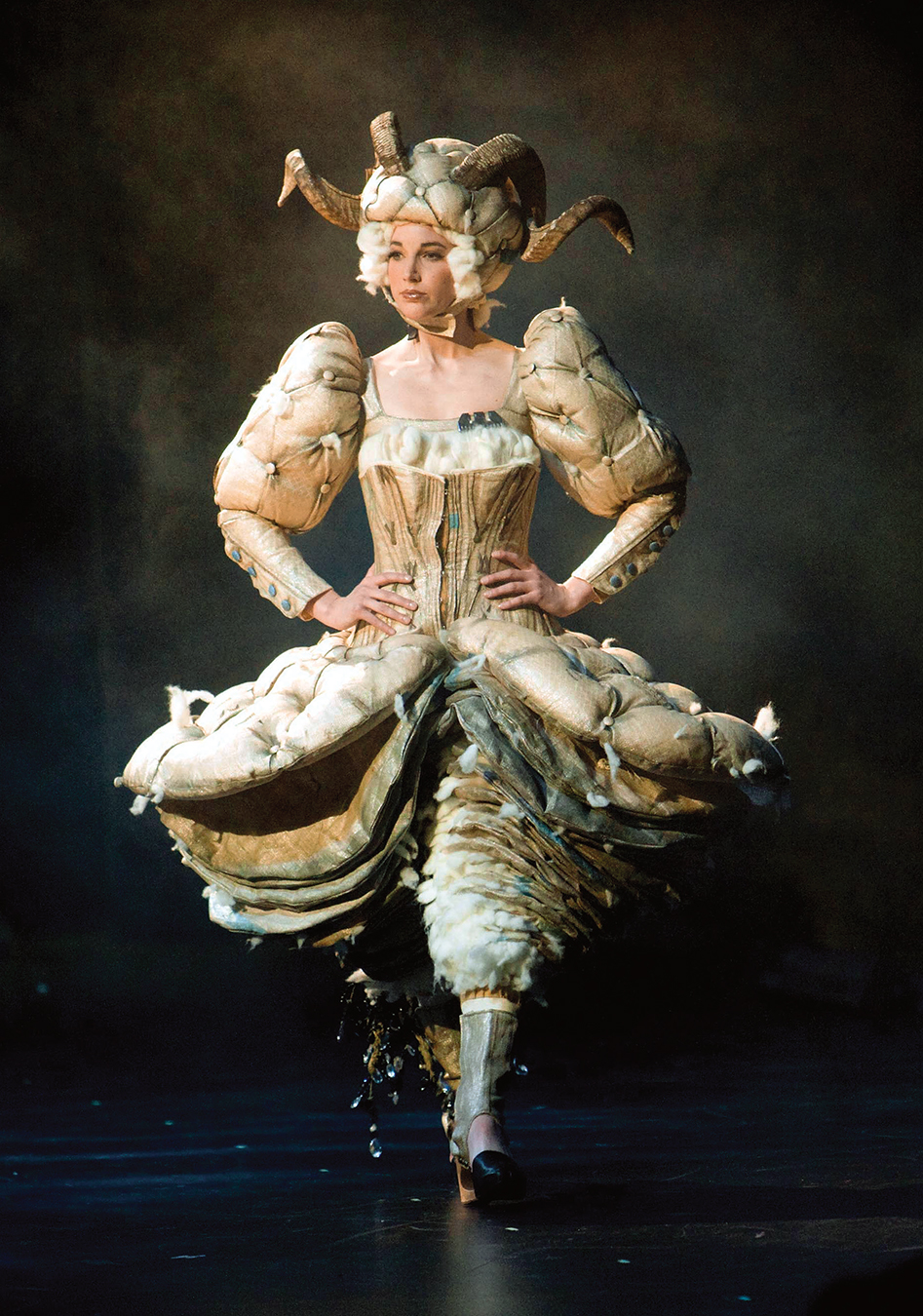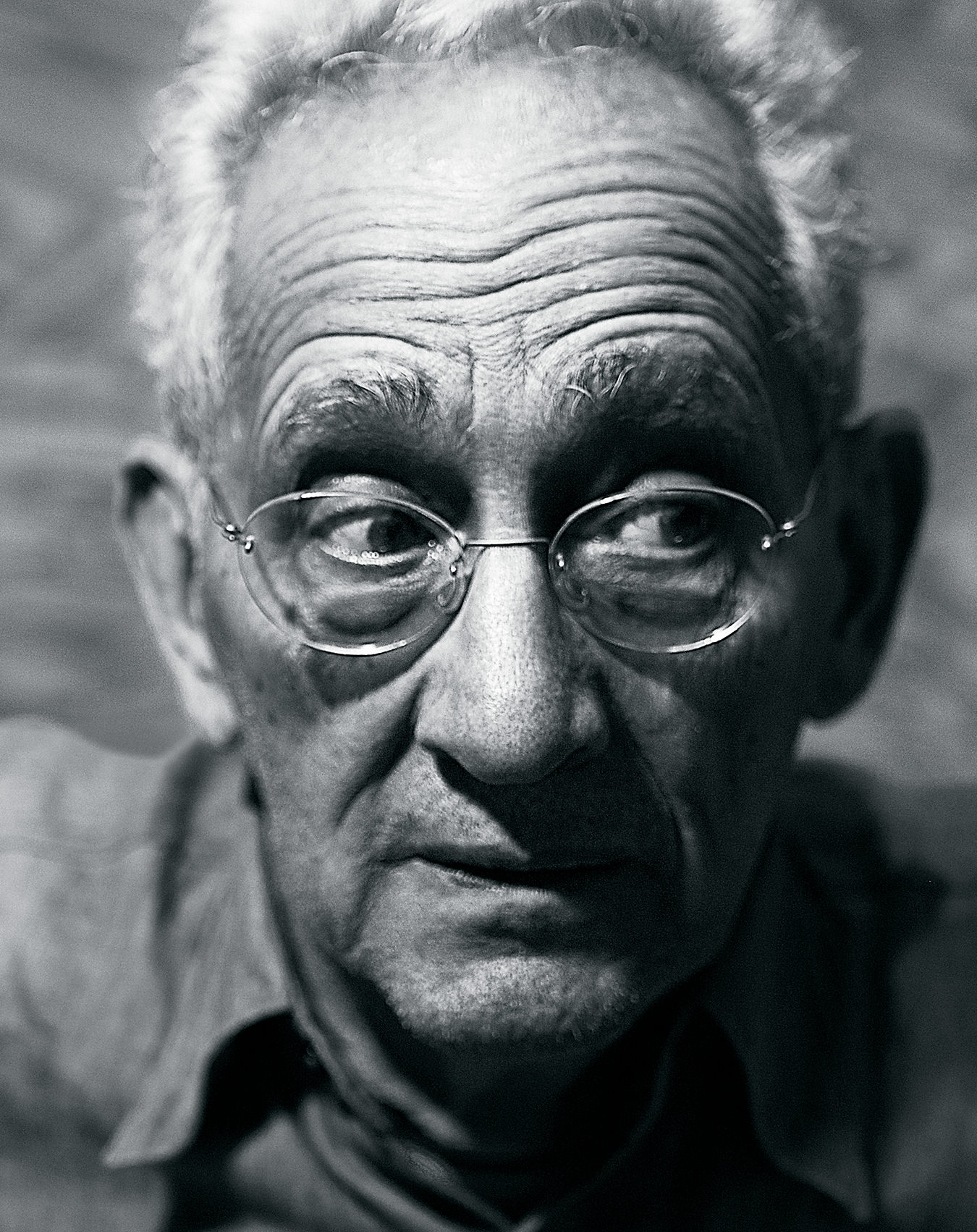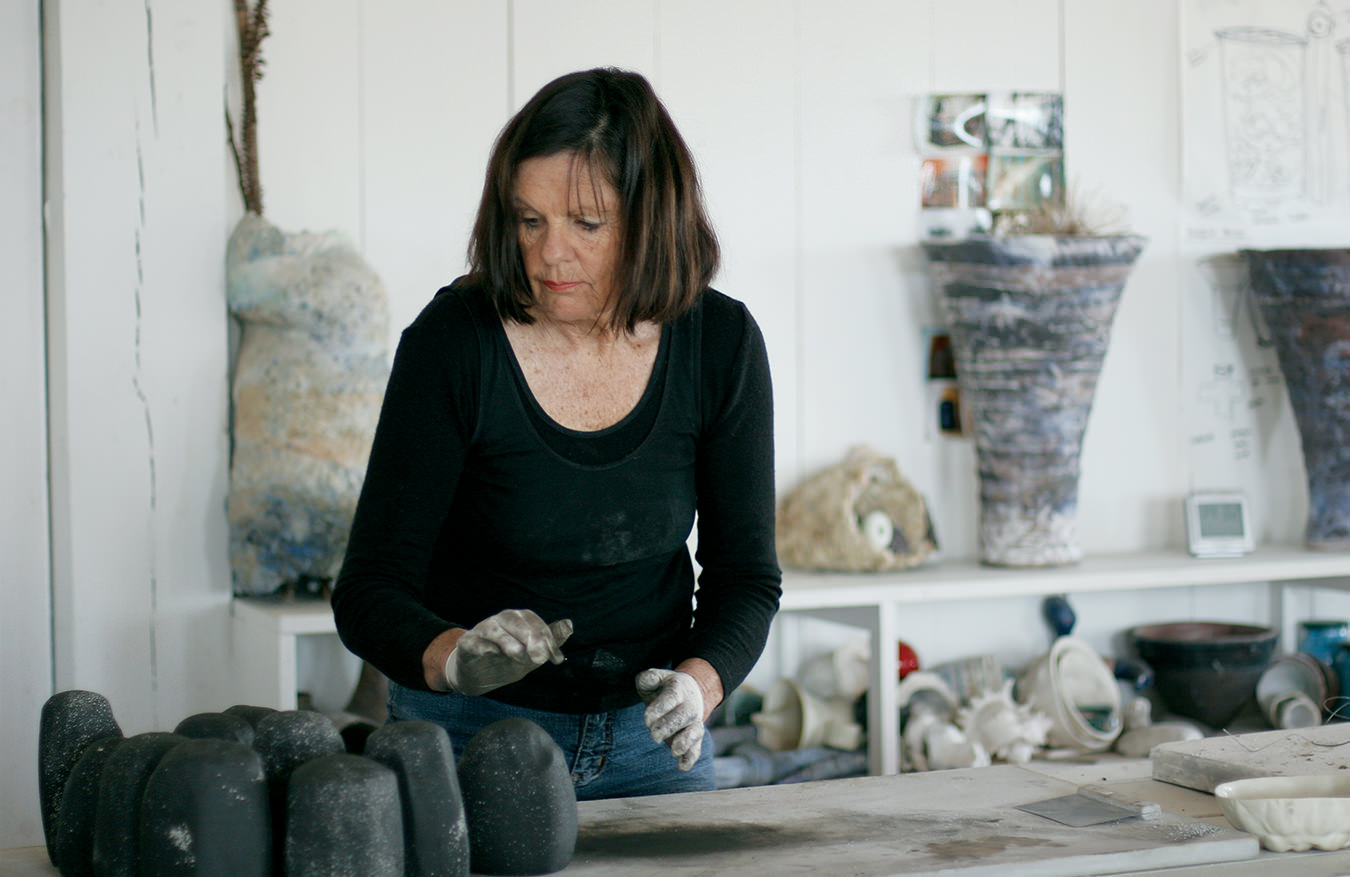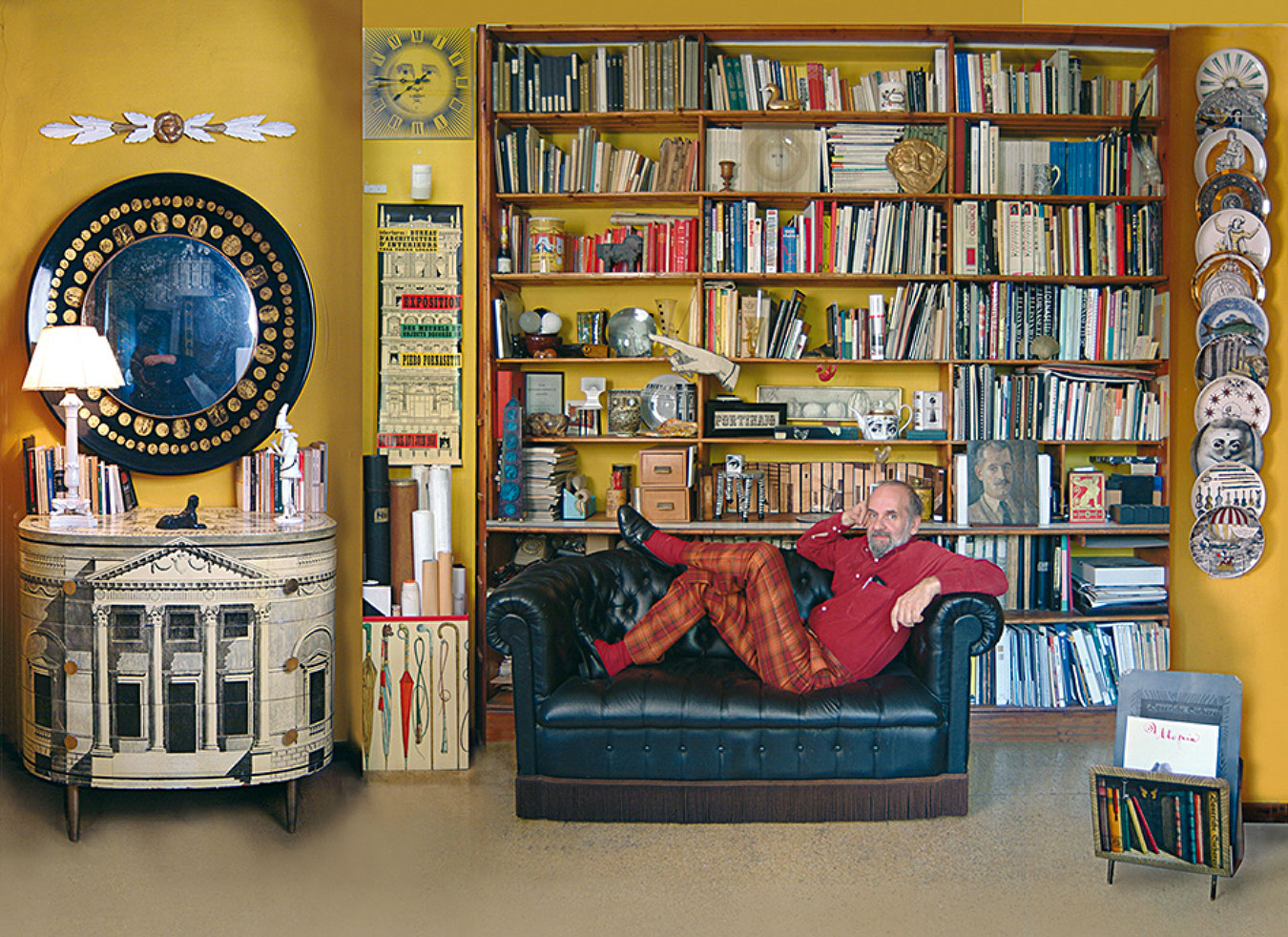-
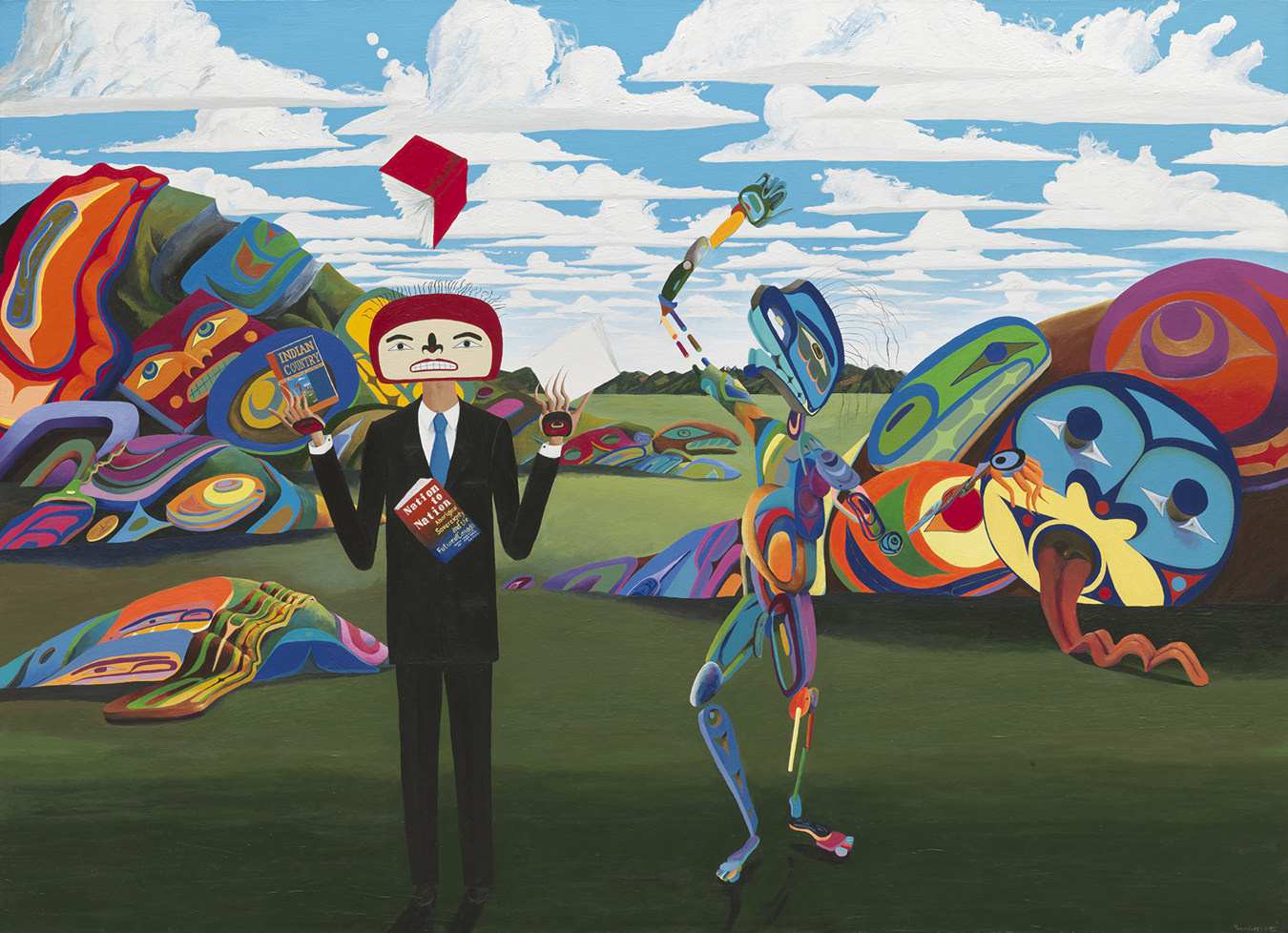
An Indian Game (Juggling Books), 1996.
-
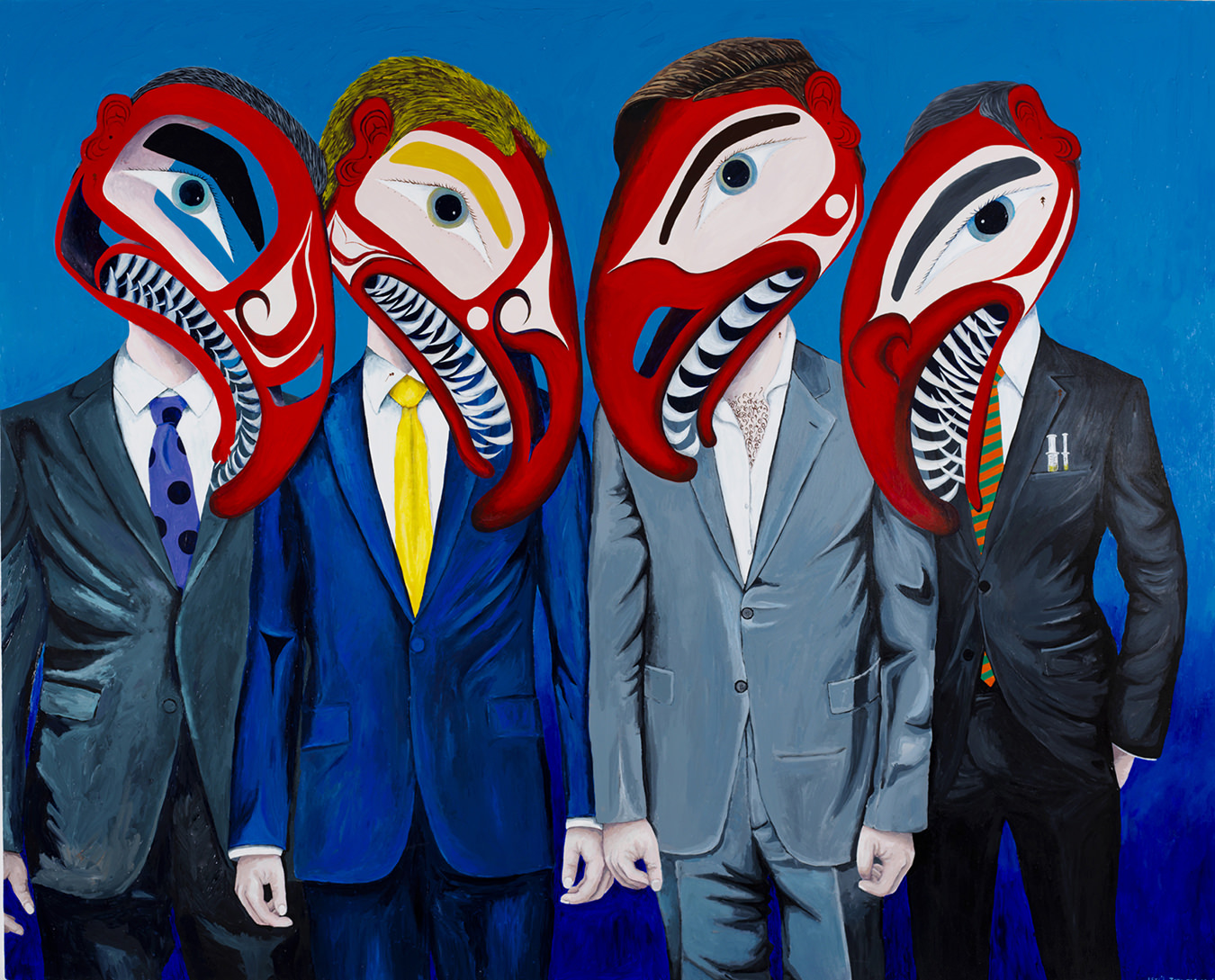
Fish Farmers They Have Sea Lice, 2014.
-
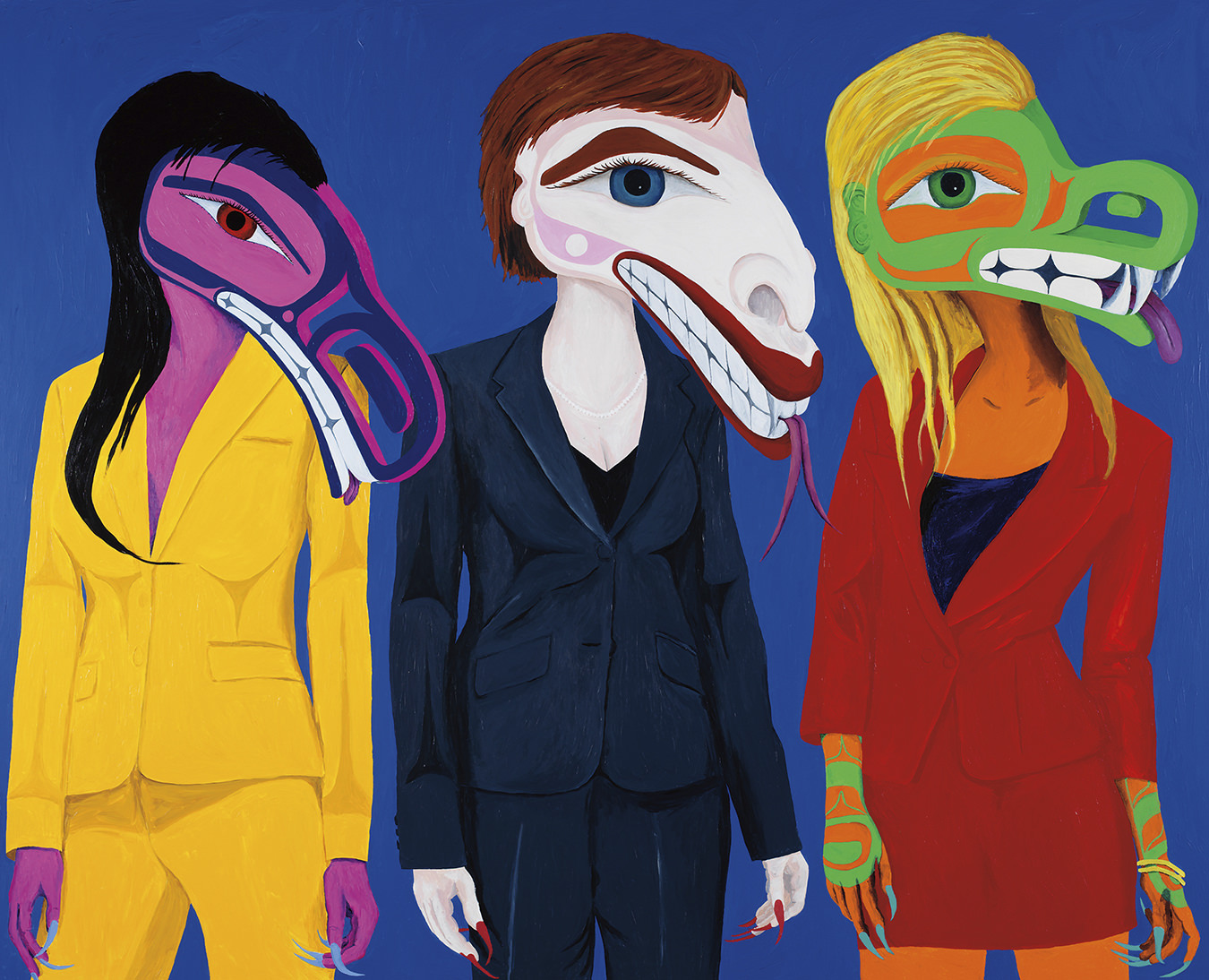
Christy Clark and the Kinder Morgan Go-Go Girls, 2015.
-
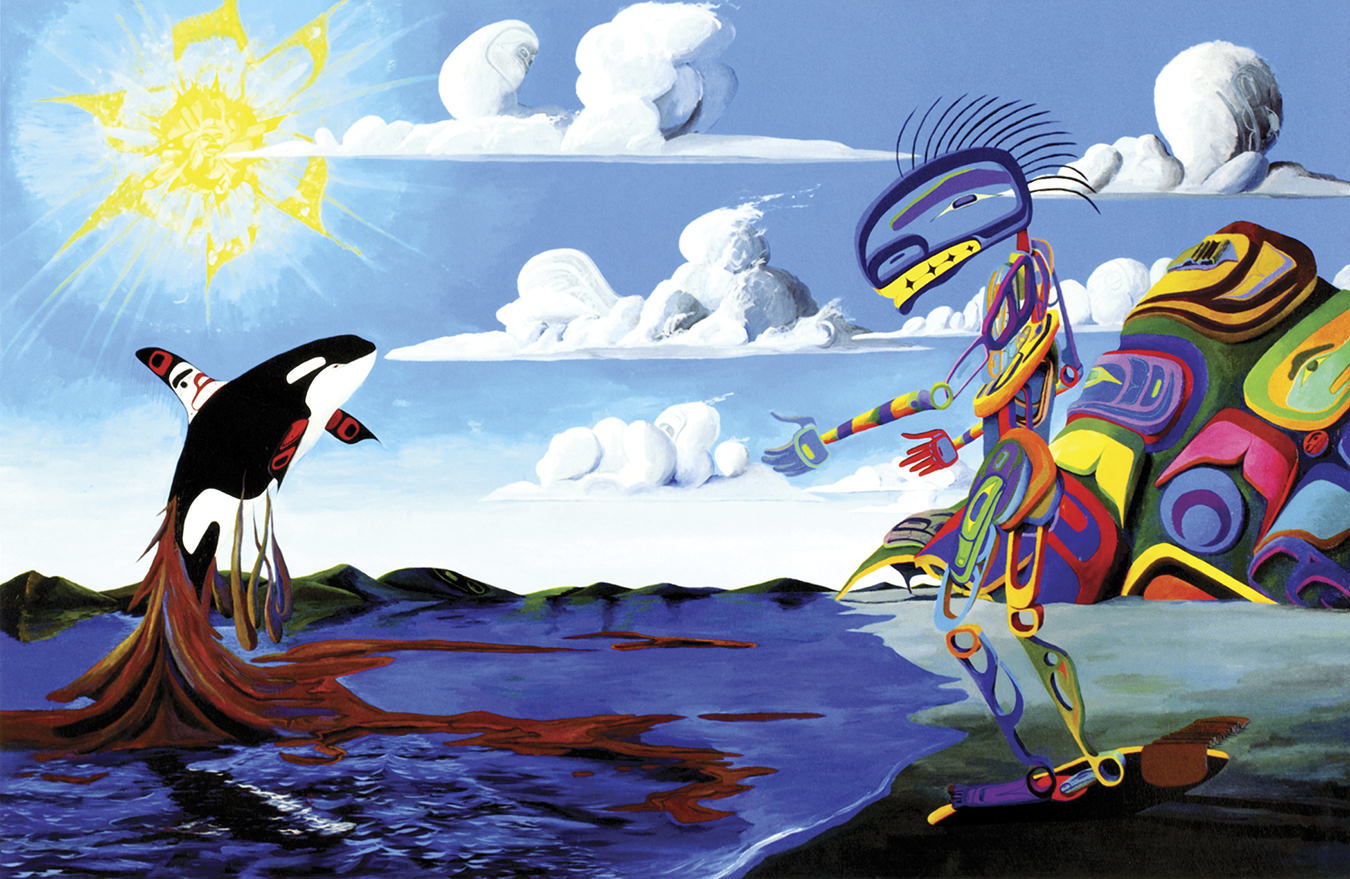
Killer Whale Has A Vision and Comes to Talk to Me About Proximological Encroachments of Civilizations in the Oceans, 2010.
-

Fucking Creeps They’re Environmental Terrorists, 2011.
-
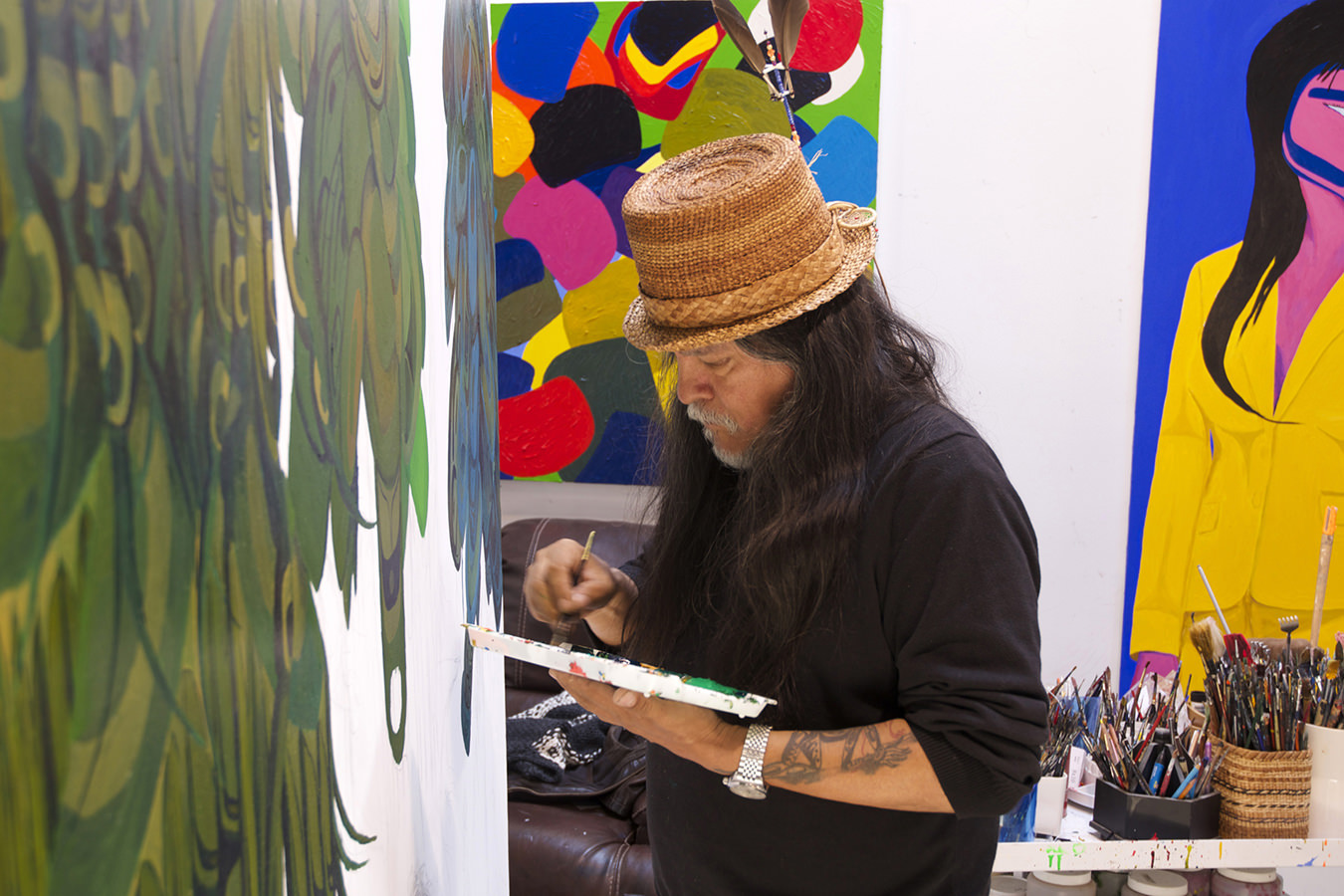
Lawrence in his studio.
Lawrence Paul Yuxweluptun
Unceded Territories.
For more than 30 years, Lawrence Paul Yuxweluptun has created challenging and polemical artworks reckoning with the Cost Salish experience of colonialism. Having attended Kamloops Indian Residential School in his youth, Yuxweluptun, who graduated from Emily Carr University of Art + Design in 1983, developed an interest in art as a mode of challenging acute injustices, from those associated with Canada’s legacy of segregation, to environmental transgressions against the Pacific Northwest’s land and sea. Unceded Territories, his new exhibit at Vancouver’s Museum of Anthropology [MOA], presents a diverse, career-spanning collection of 60 of Yuxweluptun’s works. Co-curated by MOA curator Karen Duffek and artist/independent curator Tania Willard, it is Yuxweluptun’s first solo show in Canada in 20 years.
But to speak to Yuxweluptun is to realize that to him, time is nonlinear—the future and past are as relevant as the present—and his sense of self is inextricably connected with the causes he champions. “These things that happened to outlaw language, potlaches, and general assembly happened long before I was born,” he says of his decision to become an artist. “There had to be an acknowledgement, so I had no other choice than to become a historian, making history-art and documenting colonization stress disorder syndromes.” Indeed, his canvases, which draw upon elements of surrealism, pop art, and abstract expressionism, convey a palpable tension between destruction and perseverance. His series of “super-predators”—suit-clad white collar fish-farmers and politicians with traditional formline faces contorted into menacing fanged grimaces—represent “chaotic evil,” says Yuxweluptun. “They’re super-supremacy creeps.” His surrealist landscapes feature acid-bright spirits alternately celebrating and mourning their vivid, writhing planet, which is depicted as being rife with traditional references and ovoid forms. “I love painting the land,” he says, “because it’s so true to what it is.” From lush evergreen forests to clear-cuts and oil-slicked orcas, “It can upset you, but it’s still there.”
At a time when the nation’s media seem to be increasing focus on pressing Aboriginal issues such as the National Truth and Reconciliation Report, the National Inquiry into Missing and Murdered Aboriginal Women, and the Idle No More movement, now feels like a powerful moment for Yuxweluptun’s uncompromising voice to call out for justice and change. “Somebody has to talk to the world,” he says. “I have to teach people to respect what we have. I’ve had to accept a lot of things. I have changed. Why can’t other people?”
Unceded Territories will run from May 10–October 16, 2016, at the Museum of Anthropology, University of British Columbia, 6393 Northwest Marine Drive, Vancouver, Canada V6T 1Z2, 604-827-5932.

